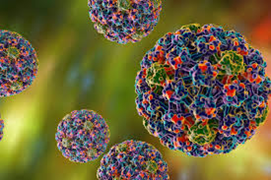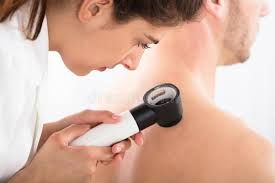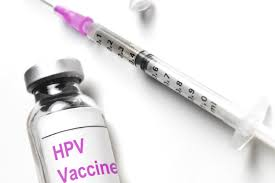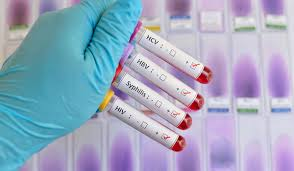What is HPV?

HPV stands for Human papillomavirus, a group of over 150 related viruses in one class. These types of viruses can infect the skin, mucous membrane, and respiratory tract.
How do we differentiate between the different types of HPV?
HPV types are differentiated based on the DNA of the virus. Each individual HPV type is assigned a number (i.e. HPV 2, HPV 3)
What can HPV do to us?
Papilloma means “wart”, therefore it comes to no surprise that HPV virus causes warts. Warts can be on the skin, genitalia, or anywhere along the respiratory tract in humans. More importantly, persistent viral infection with HPV can lead to serious oral and genital cancers.
What type of cancers can be caused by HPV:
Genital cancers such as cancer of cervix, vulva, vagina, penis, and anus
Oral cancers such as cancer of the throat, the base of the tongue and tonsils
What are the signs of an HPV infection?
Most of the time, people infected with HPV do not have any signs or symptoms of an infection. Therefore, infected people are usually unaware that they are infected at all. In other words, IT CAN BE A SILENT INFECTION!!
If symptomatic, HPV infections can present as many different types of warts or in unfortunate cases as genital or throat cancer. Further work-up may reveal the existence of a silent HPV infection in these patients.
How common is it to be infected with HPV?
According to the CDC (Center for Disease Control), every sexually active adult will be infected with HPV at some time in his or her life.
In most cases, a healthy immune system will get rid of the infection on its own over the course of two years.
How serious is HPV infection?
HPV infections can remain unknown to the infected individual and can be harmless, however certain strains of HPV have a higher risk for developing into cancers if untreated.
How can I know if my type of HPV will remain harmless or cause cancer?
HPV types that cause health problems in humans are divided into two classes based on risk:
Low risk HPVs: such as type 6 and 11, commonly cause genital warts and respiratory tract infections, but with low risk for developing into cancer.
High-risk HPVs: such as type 16, 18, 31 and 33, are those that if left untreated have a higher risk of progressing to cancer.
How can HPV infection be diagnosed?
The low-risk HPVs usually appear as a wart, which can be diagnosed clinically by an experienced eye and with the aid of a handheld magnifying device called a dermoscope.
The high-risk HPVs can be tested and identified by determining the DNA of the virus using a smear (i.e. pap smear).
Can I be screened for cancer-causing HPVs?
For females with no symptoms or signs of HPV, we can screen for high-risk HPV while obtaining an annual pap smear. Unfortunately, currently, there are no FDA approved HPV screening tools for asymptomatic male individuals.
Can I be tested for warts?

Yes, but only if there are any visible warts or suspicious skin bumps. Our dermatologists at OC MedDerm are usually able to identify warts with the naked eye, but also have accessible tools (such as a dermatoscope) which will provide a magnified view of the lesion and help provide more clinical certainty. If a diagnosis is in doubt, our dermatologists may decide to perform a skin biopsy to confirm the diagnosis of warts before beginning a treatment plan.
Can I have a blood test to diagnose HPV infection?
No. There is no blood test for HPV diagnosis.
How can I prevent HPV infection?

Fortunately, vaccines for specific HPV strains have been developed. Gardasil 9 is the 9-valent HPV vaccine which helps to protect against 9 high-risk types of HPV. Vaccination helps reduce the chance of infection by creating immunity against those HPV strains and ultimately help prevent risk for HPV-induced cancers. Be sure to ask about HPV vaccination during your medical visit to see if you are a candidate. Ask questions or call us for an appointment.
How can HPV be treated?
There are many factors that must be considered before choosing a treatment plan for someone infected with HPV or diagnosed with warts. We will individualize a treatment plan for you so that you will receive the best and most effective therapy. We will also provide private education about how to protect yourself and your partner from becoming victims of this preventable disease.
What is my risk for other STIs if I’m infected with HPV?
Our physicians recommend that any patient with one STI be tested for the other common STIs as well. This provides peace of mind for both the patient and the doctor.
Better to be safe than sorry!
At OC MedDerm we offer complete panel testing for STIs (sexual transmitted infections) and treatment for all STDs (sextual transmitted diseases). Certain types of STDs can be treated immediately.
To learn more about genital warts please click here.
We can offer complete STI/STD panel testing!!

You can be tested right here in our office for any symptom or concern you may be experiencing to ensure proper treatment for you and your partner. Testing can be as simple as a clinical evaluation, urine/blood analysis, cultures, or biopsy if needed.
Certain types of STIs can be treated immediately!
For certain STIs, we can treat you in the office. A single injection or a single pill by mouth can take care of the infection completely.
For certain STIs, we may also offer Expedited Partner Therapy. For this, we may provide prescriptions or medications for you to take home to your partner without them requiring an in-office visit.
We have the answer to any of your symptoms or concerns!

If you have any skin or genital lesions or are concerned about possible STIs or genital warts, Call us to make a medical appointment to be seen by our physicians for evaluation, education, diagnosis, and treatment if needed. Feel free to ask questions.
Schedule a Consultation
